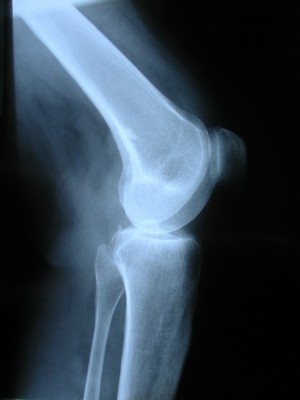Negative EFSA health claim opinions can be changed: Consultant

Senior consultant at the firm, Inga Köhler, told a claims conference in Brussels this week that two examples – one in regard to omega-3 form DHA’s ability to benefit infant eye and brain health and another for a weight management claim – demonstrated that EFSA’s health claim panel was capable of amending its opinions.
“Even if EFSA will not change its general conclusion, they may revise their opinion toward individual points such as claim wording, measuring methods and clinical parameters,” Köhler said.
DHA claim
The rejected DHA (docosahexaenoic acid) claim in question was submitted by Merck Selbstmedikation GmbH in 2009 and followed global algae-sourced DHA leader, Martek Biosciences, which had a similar DHA/ARA (arachidonic acid) dossier turned down in the first series of opinions in the second half of 2008.
The German firm recommended mothers consume 200mg of DHA (docosahexaenoic acid) per day during and after pregnancy to confer eye health and brain health benefits in the foetus and infant. But the Panel on Dietetic Products, Nutrition and Allergies (NDA) said, “There is insufficient evidence to establish a cause and effect relationship.”
During the 30-day comment period stakeholders including GOED (the Global Organisation for EPA and DHA Omega-3s), the European Federation of Associations of Health Product Manufacturers (EHPM) and the Belgian Food Supplements Association (NAREDI) questioned aspects of the ruling.
These included:
- The NDA had applied inconsistent assessment criteria as it had issued positive cognitive opinions for ALA (alpha-linoleic acid) which is a pre-cursor to DHA.
- Deviation from submitted claim because Merck proposed general DHA intake in the diet, not strictly from supplementation as the NDA ruled.
- The recognition by authoritative bodies such as the World Health Organization that DHA had a role to play in children’s development.
Responding to the comments, EFSA acknowledged DHA could be synthesised from ALA and that it had a structural and functional role to play in the brain and retina of infants and led it to back three claims in December 2009:
- “DHA intake can contribute to normal brain development of the foetus, infant and young children”
- “DHA intake can contribute to normal development of the eye of the foetus, infant and young children”
- “DHA intake can contribute to the visual development of the infant”
However these claims have not yet entered EU law books as they are currently being debated by the European Commission and EU member states.
Weight Management
The NDA’s second revision related to a rejected article 13.5 weight management claim for an ithanol-water extract of Caralluma fimbriata called Slimaluma submitted by Gencor Pacific. In that instance, the panel acknowledged it had misinterpreted waist circumference reduction data after receiving comments from Gencor and others.
But while the NDA admitted to “a mistake” in failing to acknowledge a statistically significant decrease in weight circumference in one of Gencor’s submitted studies – something it quickly amended in its published opinion – the rejection stood as it said such a reduction could not be linked to, “an improvement in the adverse effects of an excess of abdominal fat, and particularly visceral fat.”
Despite the fact that opinion was not changed, Köhler said it offered hope for revision of opinions by the overworked panel. She recommended companies utilise academic experts, public health organisations, trade and lobby groups and general business networks to bolster arguments in the comment period.













